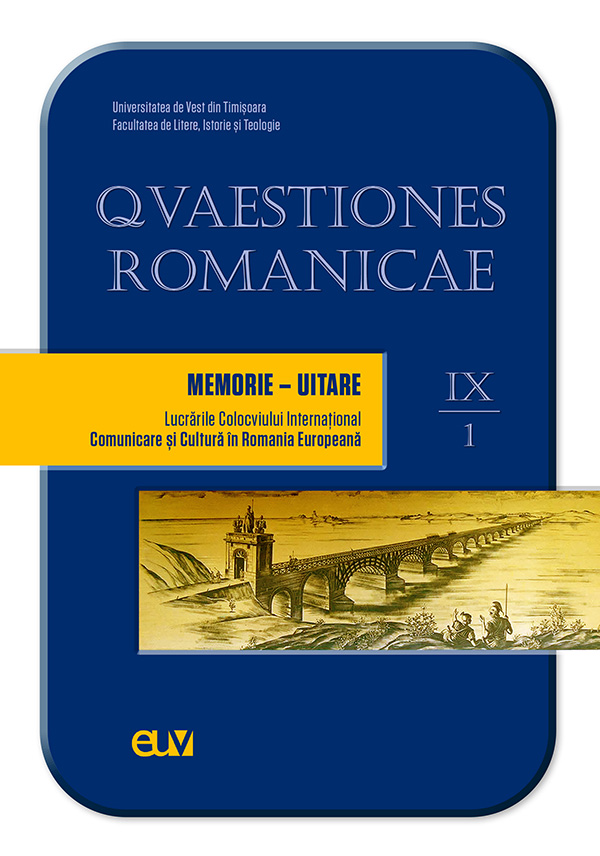Între fugitiv și etern: sentimentul de flow la cursurile de improvizație în artele spectacolului
Abstract: (The feeling of flow in improvisation classes in the performing arts): Tormented by the congeries of existential problems, thrown alone and restless on the island of the world, man needs a form of escape, of asserting his inner freedom. One of the ways of perfect revelation is art, because of its cathartic, therapeutic role, as Friedrich Nietzsche stated: ”We have art so that the truth does not kill us”. An exemplary model of this creative, but extremely elaborate freedom is No theater. In his famous treatise ”Seven Secret Treatises on Nô Theater”, the legendary Zeami compares the actor's art with the revelation of the flower, as in this enigmatic and forever blooming flower is the secret and the essence of the stage embodiment. Noting that the appears only to those actors who spend a lot of time looking for it. The gift with which the actor learns the techniques of interpretation is the seed from which the flower springs. That is why Zeami says that: ”The flower is the soul that the actor puts in his art”, and the effort that the actor makes to teach him the craft is the seed. Following the path of theatrical pedagogy, it is important to note the importance of generating and awareness of the feeling of the flow. This feeling is seen as a portal to the elimination of inhibitions and in obtaining the freedom and creative spontaneity of the student-actor. Flow is an intense state of mind, which generates a state of floating, of overflowing joy, of total elimination of inner inhibitions. The flow is necessary, as it represents the antechamber of creation, summing up the state conducive to the initiation of the creative act.
Keywords: flow, flower, seed, freedom, creation.
Rezumat: Chinuit de amalgamul problemelor existenţiale, aruncat singur şi neliniştit în insula lumii, omul are nevoie de o formă de evadare, de afirmare a libertăţii sale interioare. Una dintre căile revelaţiei perfecte este arta, datorită rolului ei catarhic, terapeutic; celebră fiind expresia lui Friedrich Nietzsche: „avem artă pentru ca adevărul să nu ne ucidă”. Un model exemplar al acestei libertăţi creatoare, dar extrem de elaborate, este teatrul No. În celebrul său tratat „Şapte tratate secrete de teatru Nô”, legendarul Zeami compară arta actorului cu revelaţia florii, întrucât în această enigmatică şi mereu înflorita floare se află secretul şi esenţa întruchipării scenice. Cu precizarea că floarea se arată numai acelor actori care îşi petrec multă vreme căutând-o. Dăruirea cu care actorul învaţă tehnicile de interpretare este sămânţa din care răsare floarea. De aceea, Zeami spune că: „Floarea este sufletul pe care actorul îl pune în artă sa”, iar efortul pe care îl depune actorul pentru a-i învăţa meşteşugul reprezintă sămânţa. Mergând pe drumul pedagogiei teatrale, trebuie remarcată importanţa generării şi conştientizării sentimentului de flow. Acest sentiment este văzut ca fiind un portal spre eliminarea inhibiţiilor şi în obţinerea libertăţii şi a spontaneităţii creatoare a studentului-actor. Flow este o stare de spirit intensă, care generează o stare de plutire, de bucurie debordantă, de eliminare totală a inhibiţiilor interioare. Flow-ul este necesar, întrucât reprezintă anticamera creaţiei, însumând starea propice pentru declanşarea actului creator.
Cuvinte-cheie: flux, floare, sămânţă, libertate, creaţie.
